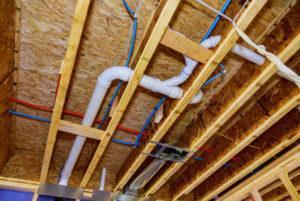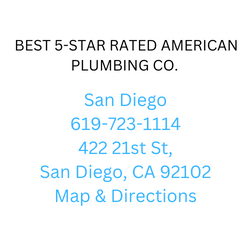Welding for Pipefitters and Soldering for Plumbers
You undoubtedly have a bright career in front of you if you are a prospective student enrolled in one of the plumbing or Trade schools.
A plumber or a pipefitter typically maintains repairs or installs pipes that transport water or other chemicals. Whether a residence or a business, it is mostly where plumbers work.
A pipefitter usually works in an industrial place like a factory, boat, etc. Aside from that, practically every home or business needs qualified plumbers or pipefitters. So, do we need qualified plumbers for soldering? So, do we need qualified plumbers for soldering?

Despite being two distinct occupations, welding is mostly a pipefitter job application. However, prior knowledge of each metal’s fusing potential can be required.
As a result, this career includes some risks.
An individual can obtain the practical training necessary to achieve great things in the plumbing sector by taking an excellent trade school plumbing course.
Additionally, if you want to become a welder, you can enroll in a welding training program. Welders and plumbers are both necessary in practically every business nowadays.
One needs to have the right tools for operating systems with pipes and other parts.
As a result, persons who wish to benefit from plumbing apprenticeship programs’ in-depth knowledge, skills, and competency must enroll in a specialized plumbing certification program.
Furthermore, due to the ongoing technological advancements, this industry offers many student job opportunities. The whole learning process will undoubtedly be fascinating.
Aside from that, students can complete the plumber class’s curriculum in about 2 years for an essential apprenticeship. More courses can be taken.
Consider entering this job as soon as possible because the benefits will last a lifetime. In a nutshell, everyone needs to choose the best technical school!
Today’s trade professions have many new opportunities for unemployed employees. Apart from that, the nation should prosper as long as its workers continue to advance their professions.
Conclusion:
Welding and soldering are two critical skills for pipefitters and plumbers, each with a unique application and requirement. Pipefitters often work on larger, industrial-scale piping systems that need to withstand high pressure, temperature, and sometimes corrosive materials.
This is where welding comes into play. Welding provides a robust, leak-
proof connection by melting the base metals and fusing them to form a solid piece. This results in a reliable and durable joint capable of withstanding harsh conditions in industrial environments.
When Soldering a Copper Joint
On the other hand, plumbers commonly work with smaller residential or commercial water supply and drainage systems, where the materials used and the pressures involved are different.
Soldering is a technique frequently used by plumbers, especially when dealing with copper pipes. Unlike welding, when soldering, you need to solder the joint with a roll of solder rather than melting or welding the joint.
When soldering, a filler material (solder) is heated until the heat draws the solder into the joint; thus, the two pieces become connected, creating a seal when it cools and solidifies—a solder joint.
This method is often preferred for these types of systems due to its ease of use, lower working temperature, and ability to make a waterproof joint that is still strong enough for most plumbing applications.
Soldering is used for copper piping (water piping.)

